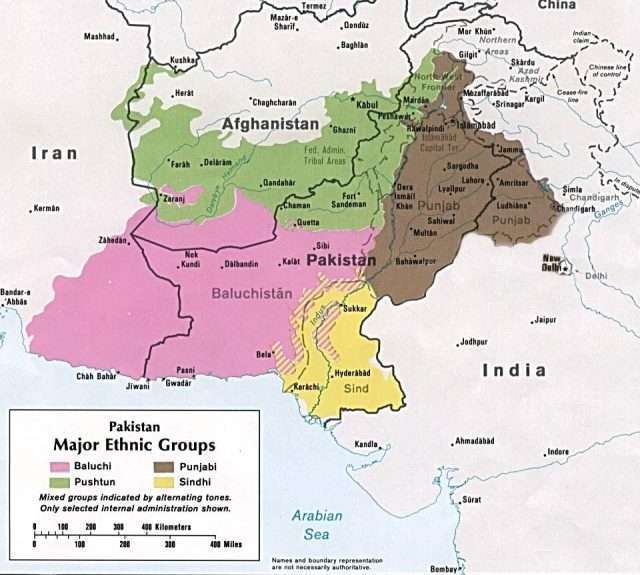
In Afghanistan, the Taliban are arresting or kidnapping the Balochis to please Islamabad. Last week, the Balochistan Liberation Army organised violent attacks which severely hit the Pakistani army and threatened Chinese interests in the region.
In Afghanistan, cases of arrests and kidnappings of Balochis have increased following the recent attacks in Pakistan. According to local sources, 26 Balochis have been abducted in Kabul over the past week. Until now, their whereabouts are unknown.
Sources familiar with the situation report that the Taliban, at the request of Islamabad, are detaining Balochis, while many of them are registered with the UNHCR as refugees.
Geopolitical scenario
The Balochi ethnonationalist and separatist movements represent a threat to Pakistani security. According to the Ministry of the Internal Affairs of Pakistan, on February 2nd, 2022, the Balochistan Liberation Army attacked two security forces operation centres in Panjgur and Noshki districts, killing 12 soldiers and wounding 23. By contrast, BLA stated that 17 of its suicide bombers took part in the operation, which lasted 70 hours, and allegedly killed a hundred soldiers. Recent attacks highlighted that Balochistan, the major Pakistani province, cannot be considered safe and stable.
Pakistan resulted in being an unsafe place for Chinese investments. Beijing has hugely invested in Pakistan, promoting its Belt and Road Initiative and establishing the China-Pakistan Economic Corridor (CPEC), which interests Balochistan, the Pakistani territory near the borders with Afghanistan, and the port of Gwadar. Last July 2021, a violent attack killed nine Chinese engineers working at the Dasu Hydropower Project in Kohistan District, Khyber Pakhtunkhwa Province, in Pakistan. Although the attack did not interest Balochistan, this event alarmed Beijing about the security and feasibility of its investments projects in CPEC. Before, in May 2017, two Chinese nationals were killed in southwestern Balochistan province, days after they were kidnapped by armed men pretending to be police officers from the city of Quetta.
In Afghanistan, Balochis are an ethnic minority mainly located in the south. Although there are no precise data and statistics regarding the number of Balochis living in Afghanistan, approximately around 600 thousand Balochis live in the country, of which 400 thousand are Balochis speakers and 200 thousand Brahui speakers. The Balochis speakers are primarily settled in Nimruz Province. The Brahui speakers mainly inhabit Kandahar Province. Balochis also live in Helmand province and other parts of Afghanistan.
Why does it matter?
Taliban needs Pakistani support for its political survival and might please Islamabad by arresting or kidnapping Balochis. Islamabad has always been a direct or indirect supporter of the Taliban. Although some Pakistani Government’s recent statements might harm relations between the Taliban and Islamabad, some prominent figures among the Taliban movement, such as Sirajuddin Haqqani, have strong connections with the Pakistani Inter-Services Intelligence (ISI). The arrests and kidnappings of Balochis in the Afghan territory might be interpreted as an attempt to please Islamabad in the fight against the Balochis separatist movements.
Since China has economic interests in Afghanistan, the Taliban want to reassure Beijing about safety and stability in the country. Since their rise to power, the Taliban have invited and discussed a significant involvement in the Afghan economy with Chinese authorities and companies. Attracting Chinese foreign direct investments (FDIs) and revitalising the Mes Anyak copper mine project in Logar province are among the Taliban’s main attempts to improve the Afghan economy severely hit after the U.S. troops’ withdrawal. In this regard, the Taliban might ‘offer’ the arrests of Balochis in their territory as a sign of serious commitment to guaranteeing Chinese investments in Afghanistan and Pakistan along the CPEC.
The Taliban repressive measures against the Balochis might push some of them into the arms of terrorist organisations. Since the Taliban have increased their arrests and kidnappings of Balochis, the Islamic State and other terrorist groups in a fight with the Taliban interim government might exploit the situation and elaborate targeting propaganda to recruit new fighters among their ranks or organise violent attacks on the Afghan territory.



